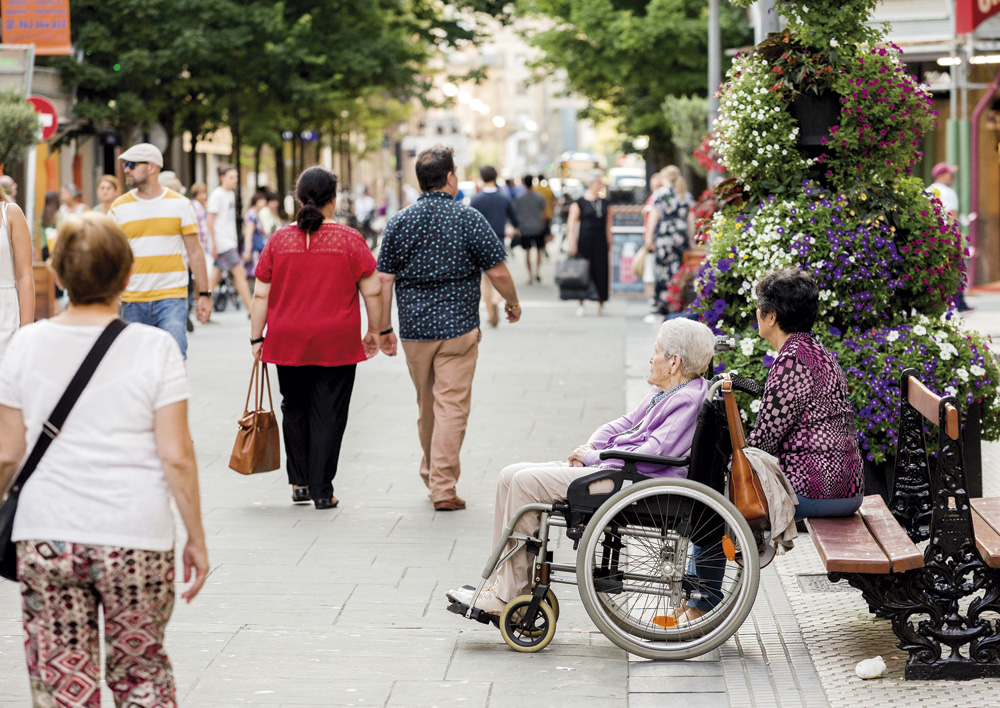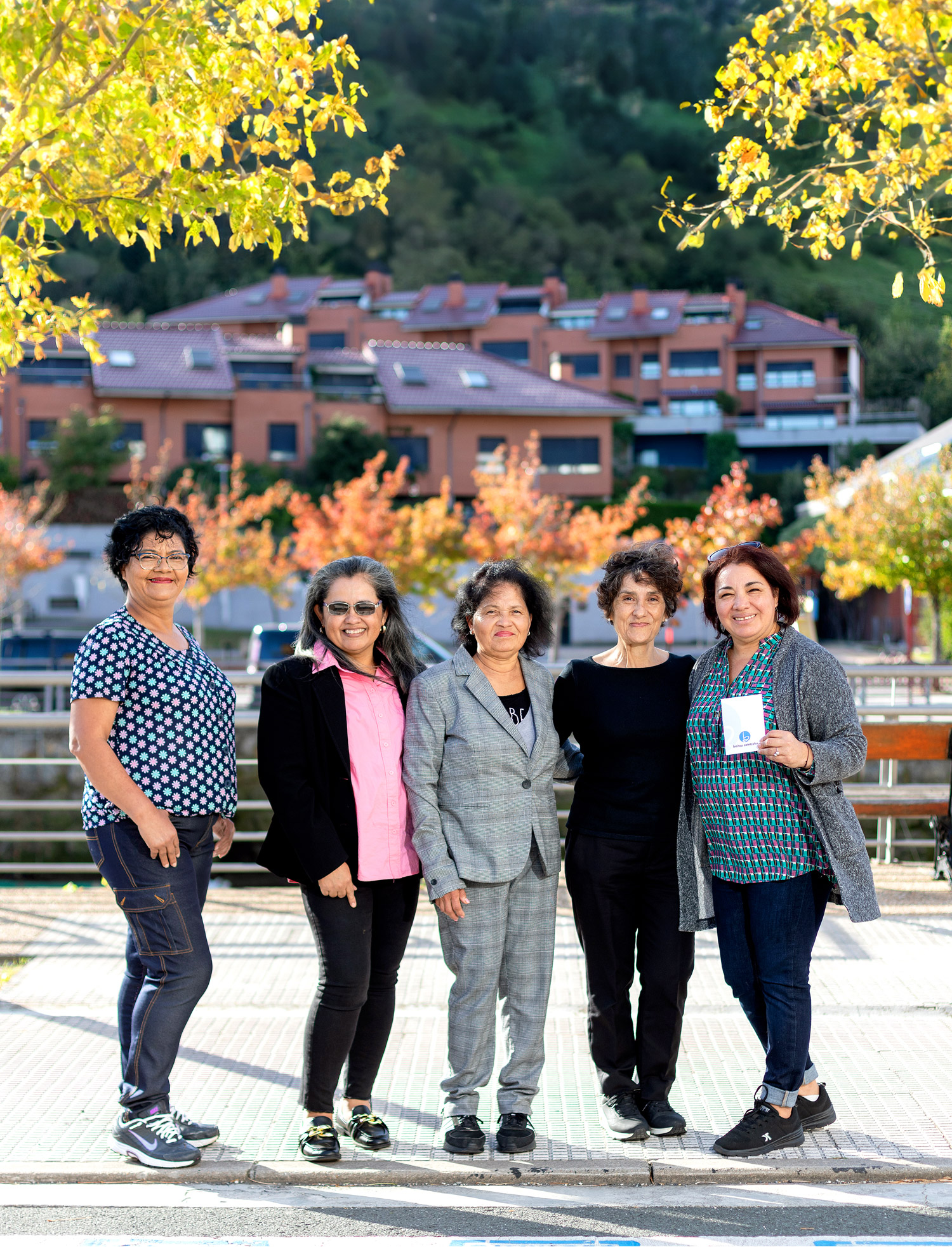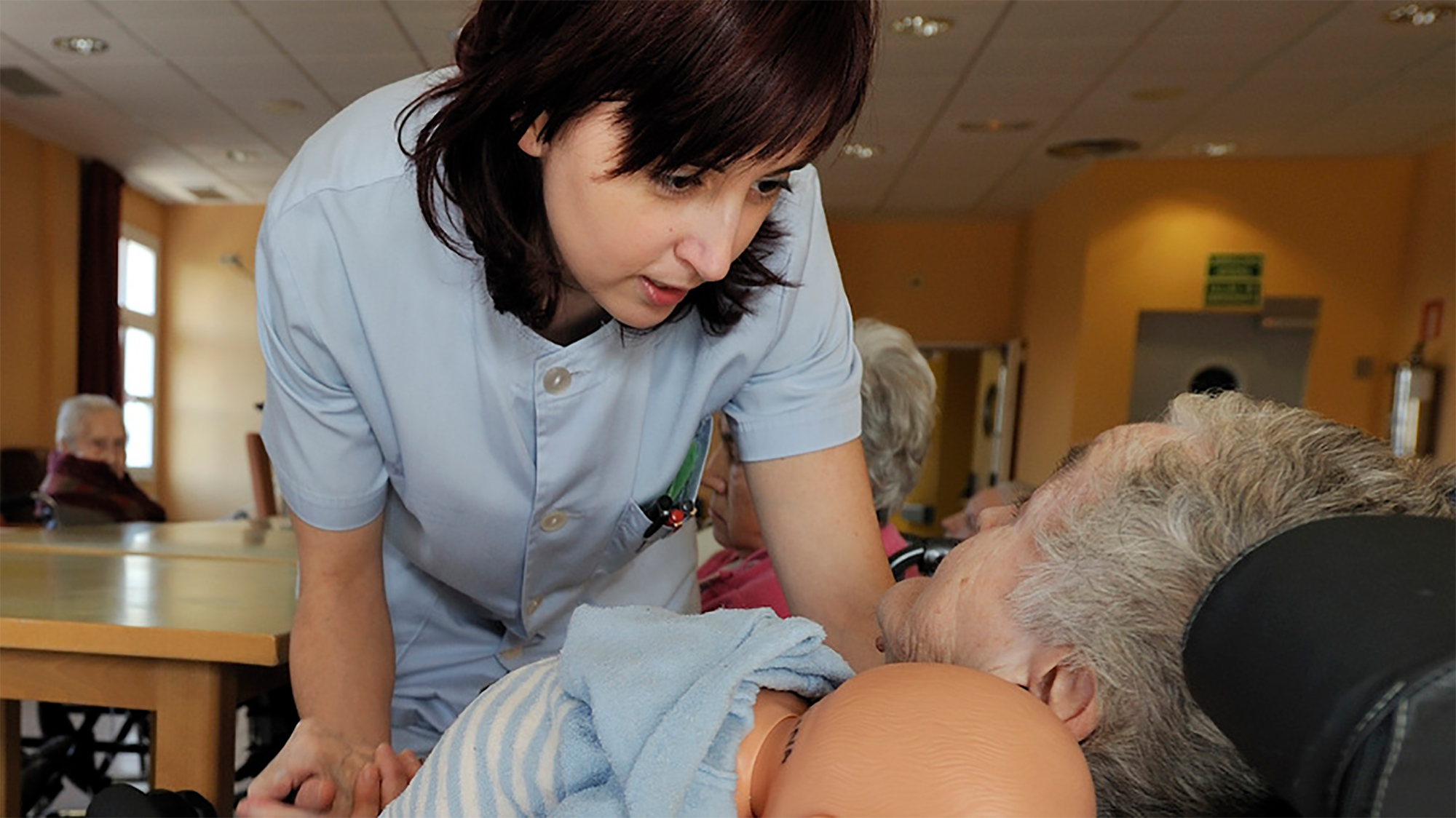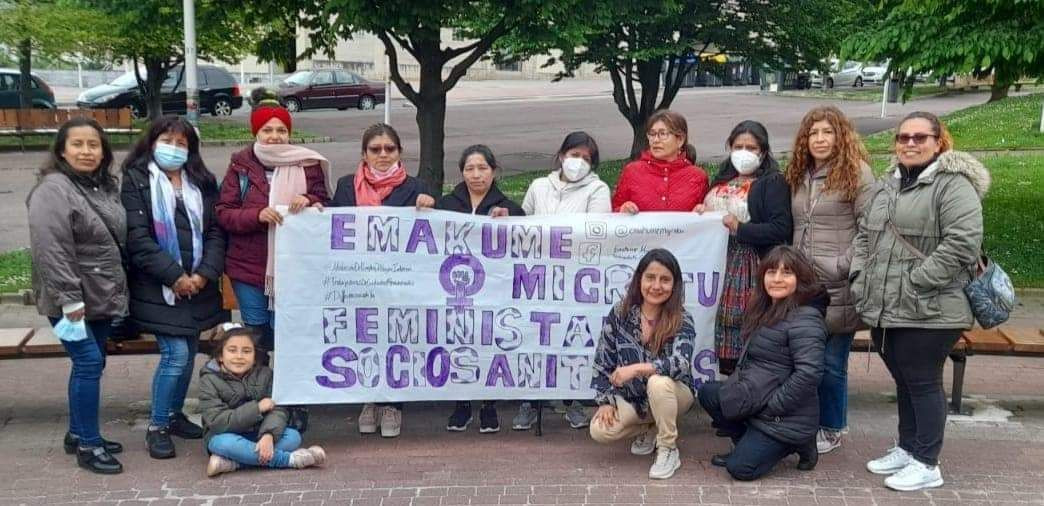Slavery of the 21st century
- “In all the portals of Euskal Herria some slave works, and we don’t care.” That's what Silvia Carrizo says. She works at the Malen Etxea Association, which aims to guarantee the rights of foreign women. The poor working conditions of women who work in housework and care are often talked about, but not many speak like Carrizo without his mouth open: “We need foreign women in situations of dependency and slavery to provide our care networks in the Basque Country.”

According to statistics from the Association of Household Workers of Bizkaia (EMLV), the majority of foreign women living in the households in which they work, work more than 60 hours a week and rest less than ten hours. In almost all cases, wages are lower than they are. In fact, considering that 71.56% of household employees work more than 60 hours a week, the wage should be at least 1,267.46 euros and 82.11% earn less than that amount.
For this report we interviewed two foreign women who work as household employees in the Basque Country: Gloria Martínez from Honduras and Natalia Castro from Nicaragua. The two are invented names that, to preserve their intimacy, have not wanted to reveal real names and surnames. Martinez has a break of two hours a day and only rests on Saturdays for two hours.
Katia Reimberg and Soraya Ronquillo, of the Bidez Bide association, which works for the rights of migrant women, state that they are working 24 hours in unbridled care and housework: “They cannot leave this sector of work because our society needs it and because the architecture of this system allows it.” They have explained that they have great difficulties in approving studies in the countries of origin, so they have to work on surveillance: “The women of South America are the most dedicated to care; they speak Spanish, have a reputation for being sweet and are also Catholic. It’s perfect, everything matches up.”
This is what Martínez and Castro are doing. They have been taking care of our older people for many years, and today they are working on a contract, but the road has not been easy. One was a trade specialist in the country of origin and the other was a professor and sociologist: “When we came to the Basque Country we knew that we would have no choice but to devote ourselves to surveillance.”
Ronquillo believes that our social structure needs these women to be bonded: “That’s why governments accept all these abuses, and complicity and responsibility for these women is shared by all.” He believes that looking away creates a cyclical structure of the maid. “People believe that they have all the power over the life and time of these women, and until we realize that these foreign women are in slavery we cannot create a democratic state.”

The members of Bidez Bide consider it essential to value the sector in order to find alternatives to the problem: “In hospitals, for example, there are people who need 24-hour care, but to ensure that need people work in eight-hour shifts. It should also do so with those who work in the home.” Martinez also believes that his work is not worthwhile: “I’ve been with the same family for many years, I try to do my job the best I can, and I think they don’t value what I do.” Martinez claimed this year for the first time his holidays and started to collect public holidays which he did not receive: “At first you are very afraid to ask for the rights that correspond to you, because they can throw you out and receive people without papers, because when you are in this situation you accept any employment contract.” Martinez recalls that when the surveillance began for the first time, the contractors pointed things out and controlled more, thinking that he could commit a robbery: “Now you know me and you know I am a good woman.” However, it lacks value for its work: “I don’t ask much, I just respect my rights.”
Martínez rests only two hours a day, making it difficult to create contact networks: “In two hours it gives me no time at all. My sisters live in San Sebastian and I can’t see them.”
Castro works in a hamlet and takes care of two men. This was agreed upon in their working conditions, but with the power relations between the family and him, in addition to the care tasks, they force him to make and receive daily food for all the people living in the dwelling: “I’m having very bad times, I feel very lonely.” Castro has lived in the Basque Country since 2007 and told him that he had never had such an experience before: “I’ve been working inside my home for years, just two hours a week resting and caring for very difficult patients, but I’ve never been so bad.” Feels rejected at home: “Everyone speaks Basque among them, of course, I understand that I do, and I also try to understand it, but my Basque level is still not very good.” He adds that he cannot have a conversation with anyone and that his bosses get angry about everything: “I live in the loft of the farmhouse, it’s a kind of chabola. The other day, a little drink came down and passed through the roof of the senior's room. They rebuked me a lot.” Castro wants to change jobs, but since he only rests two hours a week, he finds it difficult to find something else: “In addition, in my country there are many friends who need my salary to survive, it’s not so easy.”

Effect of slavery
According to Carrizo, modern neocolonialism is what we have in the twenty-first century. Ronquillo also agrees on this: “We still have a colonial view of the maid.” He says that power relations are obvious. As an example of this, Martínez says that they do not call him by his name, they call him “girl”. Carrizo is clear that the European institutions still have colonialism, capitalism and racism in their bowels, and the same is true of the Basque institutions, although we are not the only ones: “There are more countries where women are slaves to housework and care: Italy, the Philippines, Saudi Arabia, Portugal to a lesser extent, and South America also in high classes.” Ronquillo also has an air of neo-colonialism to the current situation: “There is a colonial view of years of dependency. In our countries we know the maid since the conquest of Spain and the guts are still there”. The girls and Europeans who come from South America to Europe are people of less value: “It is no accident that some wear uniform or that the contractors do not call the workers by their name.”
“XXI. “The need for workers within the 20th century house is slavery,” says Ronquillo. “In saying this, some say that you can’t be slavery because you’re paid. Okay, so she is the maid, like the maid that the women of Spain and Euskal Herria lived over half a century ago.” The Bidez Bide association carried out the documentary, collecting the testimonies of the people who today are housewives and who were raised in their day, finding many similarities: “There was a time when many of the dwellings were raised to the cities. These women had very poor conditions, worked 24 hours and often laughed at them, for example, because they did not know Spanish.” They have added that something similar happened, for example, with those who came from Extremadura, but that in those cases the reason why they laughed was because they did not know Euskera or its origin. Now foreign women watch those who were raised for 24 hours: “Recently we did the screening of the documentary in a nursing home and the women there repeated that they had been worse.”
Reimberg has pointed out that the women here have taken great care of the women at home: “If you didn’t get married, it was up to you to take care of your parents. Now women have entered work and the family members they were caring for are now being cared for by foreign women. Indigenous women feel bad because they cannot take care of their family members and foreign women stop taking care of their families to take care of others and that is why they also feel bad.”

Yes, no interest
The members of the Bidez Bide association are of the opinion that there are alternatives to escape from the situation of slavery or servitude: “If there is money, lack of political will and social commitment.” The Basque Government is trying to regularize the sector, that is, to “improve the conditions of domestic workers and take this type of work seriously”. In order to bring the profession into value, it is intended to force workers to train and take courses. The measure is a consequence of the Dependency Act, which was approved in 2008. According to this law, the caregiver is required to ensure a minimum of training. Ronquillo and Carrizo have strongly criticised the measure: “People who work all day don’t have time to train and those who can’t train stay in a more fragile situation.” The members of Malen Etxea have fought hard against the need for home workers to train, and it seems that, at the moment, it is not going to be necessary: “It’s been very hard for us to understand the situation of workers and why they can’t do training.” However, the law provides for a number of exceptions in order not to carry out training: Persons over 55 years of age and with sufficient experience to apply for an aptitude certificate. People over the age of 50 could also be part of this group.
Martinez says that he was surprised when he was told that he had to train: “However, the family wanted to make it easier for me to carry out studies, because my training makes it easier to justify their subsidies.” Ronquillo also recalled this: “The reason for training is not the guarantee of rights, but the obtaining of certificates so that families can access subsidies.” However, in the end they will not have to do so, they will equip their experience with that of training. They have more than one conflict with the laws of the Spanish state. The People’s Party, at the last minute, managed to introduce an amendment to delay the ‘standardisation’ process of the special system of household employees until 2024. The process started on 2 January 2012 and had as its primary objective to align the general scheme contribution bases with those of the domestic sector. Reimberg took the view that these changes are not of interest to politicians, who have not undergone radical changes. Carrizo has also been very critical: “The Basque Government, like the Spanish State, submits the slave army to its dominion.”
But what can the Basque Government do to improve the situation? Carrizo believes there are many possibilities. However, it is clear that not all the responsibility lies with the institutions: “We need a community commitment to care.” Carrizo has stressed that if we do not have a crisis of in-depth care in the Basque Country, it is largely because of the work done by foreign women: “How is it possible that the 30-year-old grandson is not willing to spend a night with his grandmother? That’s what’s happening here.” Martínez also believes that we take little care of ourselves here: “I get paid to take care of myself and my children and grandchildren leave all the custody in my hands.”
We all need care at every stage of our lives, in the words of Carrizo: “Grandma is convinced that she has changed the packages more than once, and now the 20, 25 or 30 year-old is not willing to stay overnight caring for her grandmother or grandfather.” Carrizo believes that this affects: “In addition to the care tasks, it is also necessary to receive the affection of the closest ones”.
Etxeko langile diren eta zaintza lanetan aritzen diren emakumeentzako etxea abian jarri dute Berriozarren. Zortzi pertsonendako lekua duen pisua gaitu dute zaintzan diharduten langileak 6-12 hilabetez espazio duin eta seguru batean bizi daitezen. SOS Arrazakeria Nafarroak eta... [+]
The legislature has ended and the PNV-PSE has not taken steps to change the custody model. The Lehendakari dismisses with a powerful campaign "Towards a Basque pact for care", denouncing "the political use and manipulation of care".
On 1 February, at the visit of the... [+]
I participated in the camp of small revolutions in July to reflect on care. Around the table we sat five women: Laura and Shirley of the Association of Household and Care Employees of Álava; Paula and Ainhoa of the group “Lives of all in the center”; and Kukuso, me.
As... [+]
Urkullu has on many occasions called for the public-private partnership that is at the heart of the capitalist system, but without any intention of explaining what that connection is today. When the public is complementary and dependent, it cannot oppress the interests of the... [+]





















